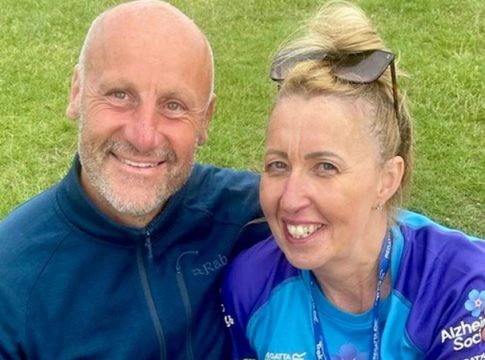Embracing Change: A Journey with Young-Onset Alzheimer’s
In February 2022, Natasha Young and her husband, Gary, received an earth-shattering diagnosis: Alzheimer’s disease. At just 51 years old, Gary’s condition is classified as young-onset Alzheimer’s, emphasizing its unpredictable nature and the impact it can have on lives that appear, on the surface, to be stable and healthy.
Understanding Young-Onset Alzheimer’s
Young-onset Alzheimer’s typically affects individuals in their 40s to early 60s. Early symptoms can be subtle and may include:
- Confusion and disorientation
- Memory loss for recent events
- Difficulty making decisions
- Mood swings
- Struggling to find words
For many, as Natasha experienced, the journey to diagnosis can be fraught with confusion and frustration. Initially, Gary’s symptoms were dismissed as stress-related or linked to anxiety, leading Natasha to advocate fiercely for a deeper investigation.
The Hard Truth
Reflecting on the early days following the diagnosis, Natasha acknowledges her misconceptions about Alzheimer’s, initially believing it to be merely about memory loss. The reality is profoundly more complex. Gary’s condition has progressed, making once-simple tasks—like cooking or even remembering his children’s names—striking challenges. These changes can be heart-wrenching, especially for their young daughters, aged 10 and 13.
As Natasha recounts the poignant moment when Gary forgot their daughters’ names, she illustrates the emotional toll this journey takes not only on the individual diagnosed but also on their loved ones.
Finding Support
Navigating Alzheimer’s disease requires resilience and support. Natasha emphasizes the importance of routine and enlisting help. They now have a dedicated caregiver, Katy, who provides assistance and companionship. Regular interactions with a Dementia Adviser from the Alzheimer’s Society have also proven invaluable, offering resources and emotional reassurance.
Here are some essential strategies for families affected by Alzheimer’s:
- Establish a Routine: Consistency can provide comfort to those with cognitive challenges.
- Communicate Openly: Encourage family discussions about feelings and fears related to the diagnosis.
- Seek Professional Help: Engage with healthcare professionals and support groups to stay informed and connected.
A Message of Hope
While the reality of caregiving can be daunting, Natasha is determined to cherish each day with Gary. Their story is not just one of loss but also of enduring love and humor amidst adversity. Natasha explains, “He’s still the cheeky and fun-loving man I fell in love with.”
It’s vital to recognize that Alzheimer’s can touch anyone’s life, regardless of their lifestyle choices or fitness levels. Natasha’s hope is that her experience will help others understand the unpredictable nature of the condition and emphasize the power of unwavering support and love.
In navigating this complex journey, Natasha reminds us that while Alzheimer’s has transformed their everyday lives, it has not diminished their bond. With courage, patience, and community support, families can unite in resilience, reminding us that every day is an opportunity for connection and joy, even in the face of significant change.
Conclusion
Ultimately, Natasha’s journey invites us all to be more compassionate and aware. With continued advocacy and community support, we can illuminate the path for those affected by Alzheimer’s, fostering an environment of understanding and empowerment. As Natasha puts it, “It could happen to anybody,” but together, we can navigate life’s challenges with love and resilience at the forefront.

Covers wellness, nutrition, mental health, and daily life tips.
Bio: Talia brings a background in health journalism and holistic living to help readers live better, one tip at a time.

